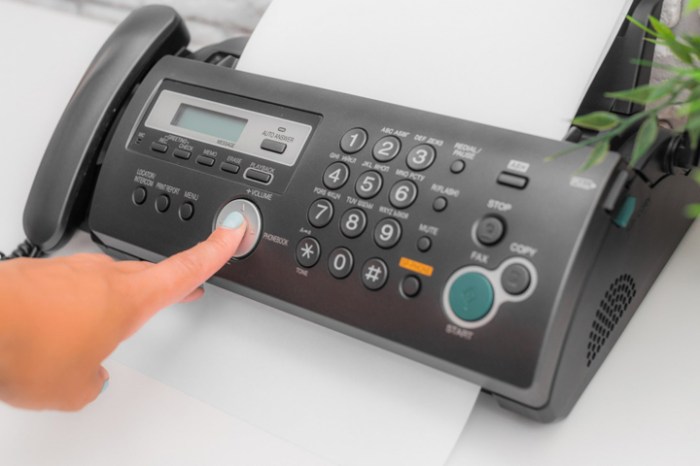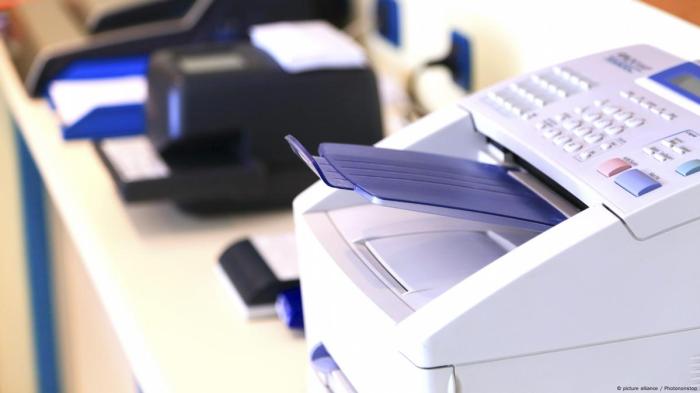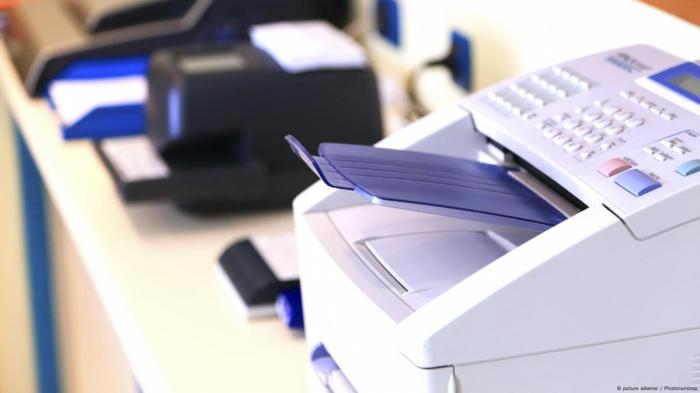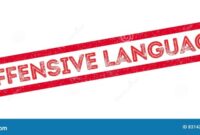8 in 10 German companies still fax study finds but why? It’s a question that has puzzled many, as the rest of the world has moved towards digital communication. While fax machines may seem like relics of the past, they remain surprisingly prevalent in Germany.
This begs the question: why are German companies so resistant to adopting digital alternatives?
This persistent reliance on faxing in Germany is a fascinating phenomenon with a complex interplay of factors. It’s not simply a matter of technological conservatism; there are deep-rooted cultural, legal, and even historical reasons that explain this unique situation. We’ll delve into the reasons behind this continued faxing trend, explore the impact it has on German businesses, and consider what the future holds for this antiquated technology in the German landscape.
The Persistence of Faxing in Germany
The notion that 8 out of 10 German companies still rely on fax machines might seem like a relic of the past in our increasingly digital world. However, this statistic reveals a fascinating paradox: while Germany boasts a highly developed digital infrastructure and a strong economy, many businesses continue to cling to this outdated technology.
Reasons for the Prevalence of Faxing in Germany
This persistence of faxing in Germany can be attributed to a combination of factors. While digital alternatives offer numerous advantages, some companies remain hesitant to adopt them due to ingrained practices, regulatory requirements, and a perceived lack of security.
- Established Practices and Tradition:Many German businesses have relied on faxing for decades, and ingrained practices can be resistant to change. The familiarity and comfort associated with traditional methods can make switching to digital alternatives seem like a daunting task.
- Regulatory Requirements:Certain industries, such as healthcare and finance, are subject to stringent regulations that necessitate the use of secure and verifiable communication methods. Faxing, with its ability to provide a paper trail, is often seen as fulfilling these requirements.
- Security Concerns:While digital alternatives offer security features, some companies may perceive them as less secure than faxing. The physical nature of fax transmission can provide a sense of security, particularly for sensitive information.
- Cost and Infrastructure:Implementing digital solutions for document sharing can involve upfront costs for software, hardware, and training. Additionally, companies might need to upgrade their existing infrastructure to support digital workflows, which can be a significant investment.
Reasons for Continued Fax Usage
While the digital revolution has swept across most industries, the humble fax machine stubbornly persists in Germany. This raises the question: why do some German companies still rely on faxing? The answer lies in a combination of factors, including industry-specific needs, legal requirements, and deeply ingrained cultural habits.
Prevalence in Specific Industries
Faxing remains prevalent in specific sectors in Germany, often due to the nature of their operations and the need for secure and verifiable communication.
- Healthcare:The healthcare sector relies heavily on faxing for transmitting sensitive patient data, such as medical records and prescriptions. The high security standards required for patient information often necessitate the use of fax machines, especially in smaller clinics and practices where digital infrastructure might be limited.
- Finance and Insurance:The financial and insurance sectors require secure and verifiable communication for transactions and legal documents. Faxing provides a reliable method for transmitting sensitive financial information, especially in cases where electronic signatures might not be readily accepted.
- Legal and Government:Legal and government institutions often adhere to strict regulations regarding document authentication and security. Faxing remains a widely accepted method for transmitting legal documents, official correspondence, and other sensitive information.
- Manufacturing and Logistics:Manufacturing and logistics companies often rely on faxing for sending and receiving orders, delivery confirmations, and other critical information. This is particularly true in cases where real-time communication is not essential and traditional methods are preferred.
Legal and Regulatory Requirements
Specific legal and regulatory requirements contribute to the continued use of faxing in Germany. For instance, the German Civil Code (BGB) states that certain legal documents, such as contracts and wills, must be signed in writing and physically delivered. While digital signatures are increasingly accepted, faxing remains a reliable method for fulfilling these legal requirements.
Obtain access to prospects for europes emerging metaverse sector macron vestager meta to private resources that are additional.
Cultural and Historical Factors
Cultural and historical factors also play a role in the continued reliance on fax machines. Germany has a long tradition of using faxing for business communication, and many companies have established procedures and workflows that rely on this technology. Additionally, older generations of employees are often more familiar with faxing than newer technologies, and resistance to change can contribute to the persistence of this practice.
The Impact of Faxing on German Businesses: 8 In 10 German Companies Still Fax Study Finds But Why

While faxing may seem outdated in the digital age, its persistence in Germany presents both advantages and disadvantages for businesses. The continued reliance on fax technology has implications for efficiency, security, and financial costs, impacting how German companies operate and interact with their stakeholders.
Inefficiencies and Delays in Communication
Faxing can significantly impact communication efficiency, leading to delays and frustrations. Here are some examples:
- Slow Transmission Speeds:Fax machines transmit information at a much slower rate than email or instant messaging. This can be particularly problematic when sending large files or urgent documents, delaying critical business processes.
- Limited Accessibility:Fax machines require physical access, limiting communication to individuals physically present at the receiving location. This can create delays if the intended recipient is unavailable or if the fax machine malfunctions.
- Error-Prone Process:Fax machines are susceptible to transmission errors, leading to garbled documents or incomplete information. This can cause confusion and require re-sending, further delaying communication.
- Lack of Confirmation:Unlike email, faxes do not provide immediate confirmation of delivery. This creates uncertainty about whether the recipient received the fax and whether the information was understood correctly.
Security Risks Associated with Faxing
Faxing sensitive information presents significant security risks, particularly in an era of heightened cybersecurity concerns.
- Interception and Data Breaches:Faxes are transmitted over public telephone lines, making them vulnerable to interception by unauthorized individuals. This poses a serious risk for companies handling sensitive data, such as financial records, customer information, or intellectual property.
- Lack of Encryption:Faxes are typically transmitted without encryption, meaning that the information can be easily read by anyone who intercepts the signal. This makes faxing highly unsuitable for transmitting confidential information.
- Physical Security:Fax machines themselves can be targets of physical theft or unauthorized access, compromising the security of sensitive documents stored in the machine.
Financial Costs of Maintaining Fax Infrastructure
Maintaining a fax infrastructure comes with significant financial costs, which can be substantial over time.
- Hardware Costs:Fax machines require an initial investment, and the cost can vary depending on the features and capabilities. Companies may also need to purchase additional equipment, such as fax servers or fax software, to manage their fax infrastructure.
- Maintenance and Repair:Fax machines require regular maintenance and repairs to ensure they function properly. This can involve costly service calls, replacement parts, and ongoing upkeep.
- Telephone Line Costs:Fax machines require dedicated telephone lines, adding to the monthly expenses of operating a fax infrastructure.
- Paper and Ink Costs:Faxing involves printing documents, incurring ongoing costs for paper and ink cartridges.
The Future of Faxing in Germany

While the world has largely embraced digital communication, Germany continues to cling to faxing. However, the persistence of faxing in Germany is unlikely to last forever. The future holds a gradual decline in fax usage as technology evolves and digital alternatives become more widely adopted.
Timeline of Potential Developments
The decline of faxing in Germany is likely to be a gradual process, influenced by several factors. Here’s a potential timeline of key developments:
- Short Term (2023-2025):Increased awareness of security risks associated with faxing, particularly in sensitive sectors like healthcare and finance, will drive some organizations to adopt digital alternatives. Additionally, younger generations entering the workforce are less familiar with faxing and may be more receptive to digital solutions.
The adoption of e-signatures and digital document management systems will further accelerate the transition away from faxing.
- Mid-Term (2026-2030):Government initiatives aimed at promoting digital communication and simplifying administrative processes, such as the “Digital Agenda 2025” initiative, could further incentivize businesses to move away from faxing. The growing adoption of cloud-based solutions will also make it easier for businesses to manage documents digitally, reducing the need for fax machines.
- Long Term (2031-2035):As the digital infrastructure in Germany continues to improve, faxing will become increasingly obsolete. The development of new technologies, such as blockchain-based solutions for secure document sharing, could further accelerate the decline of faxing. By this time, faxing may become largely confined to legacy systems and niche applications.
Government Initiatives and Industry Standards, 8 in 10 german companies still fax study finds but why
Government initiatives and industry standards play a crucial role in promoting digital communication and reducing the reliance on faxing. In Germany, the government has already implemented various initiatives to foster digitalization, such as the “Digital Agenda 2025” program. This program aims to improve digital infrastructure, promote digital skills, and encourage the adoption of digital technologies across various sectors.
However, more targeted initiatives specifically focused on reducing fax usage are needed.
- Tax Incentives:The government could provide tax incentives for businesses that invest in digital communication solutions, making the transition away from faxing more financially attractive. For example, tax deductions could be offered for the purchase of digital document management systems or for the adoption of e-signatures.
- Public Sector Leadership:The government could set an example by leading the way in adopting digital communication within its own departments and agencies. This would demonstrate the benefits of digitalization and encourage other organizations to follow suit. For example, government agencies could transition to online forms and e-signatures for official documents, reducing the need for faxing.
- Industry Standards:Industry associations and regulatory bodies could develop and promote industry standards for digital communication, ensuring interoperability and compatibility between different systems. This would facilitate the adoption of digital alternatives and reduce the reliance on faxing. For example, standards could be developed for secure document sharing and e-signature verification, making it easier for businesses to exchange documents digitally.
Comparison of Faxing and Digital Alternatives
Here’s a table comparing the benefits and drawbacks of faxing and digital alternatives:
| Feature | Faxing | Digital Alternatives |
|---|---|---|
| Security | Vulnerable to interception and unauthorized access | Secure with encryption and authentication |
| Reliability | Can be unreliable due to technical issues and network outages | More reliable with redundant systems and cloud-based storage |
| Cost | Can be expensive due to hardware costs, maintenance, and consumables | Potentially more cost-effective in the long run |
| Efficiency | Slow and cumbersome, requiring physical documents and manual processing | Faster and more efficient with automated processes and real-time communication |
| Accessibility | Requires specialized equipment and technical expertise | Accessible from any device with an internet connection |
| Environmental Impact | Contributes to paper waste and carbon emissions | More environmentally friendly with reduced paper usage and digital document storage |
The Benefits of Digital Alternatives
While faxing might still be a familiar practice in some German businesses, the digital landscape offers a wealth of efficient, secure, and cost-effective alternatives that can significantly enhance communication and streamline operations. This section will explore the advantages of embracing these digital tools and examine how German companies can successfully transition away from faxing.
Digital Communication Tools
The shift from faxing to digital communication opens up a world of possibilities for German businesses. Numerous tools can replace faxing, each offering unique advantages to suit specific needs.
- Email:This ubiquitous tool allows for fast and efficient communication, with the ability to attach documents, share large files, and send messages to multiple recipients simultaneously.
- Secure Messaging Platforms:Platforms like Signal or WhatsApp offer encrypted communication, ensuring the privacy and confidentiality of sensitive information.
- Cloud-based Document Management Systems:Services like Google Drive, Dropbox, or Microsoft OneDrive enable secure document storage, sharing, and collaboration, eliminating the need for physical copies and faxing.
- Electronic Signature Solutions:Platforms like DocuSign or Adobe Sign allow for legally binding digital signatures, replacing the need for physical signatures and faxing for contracts and legal documents.
Advantages of Digital Alternatives
The transition to digital communication offers a range of benefits that can significantly enhance business operations:
- Increased Efficiency:Digital tools streamline communication processes, eliminating the delays associated with faxing, printing, and physical document handling.
- Enhanced Security:Digital alternatives often incorporate encryption and other security measures to protect sensitive information, reducing the risk of data breaches or unauthorized access.
- Cost-Effectiveness:Digital solutions eliminate the costs associated with fax machines, paper, ink, and physical document storage, leading to significant cost savings.
- Improved Collaboration:Digital tools facilitate real-time collaboration on documents, enabling multiple users to work simultaneously and contribute to projects efficiently.
Case Studies of Successful Transitions
Several German companies have successfully transitioned away from faxing, embracing digital alternatives to improve their operations and achieve significant benefits.
- Siemens:This multinational conglomerate has adopted a digital document management system and cloud-based collaboration tools, significantly reducing its reliance on faxing and enhancing efficiency across its operations.
- Deutsche Telekom:The leading German telecommunications company has implemented secure messaging platforms and electronic signature solutions to streamline communication and enhance data security.





